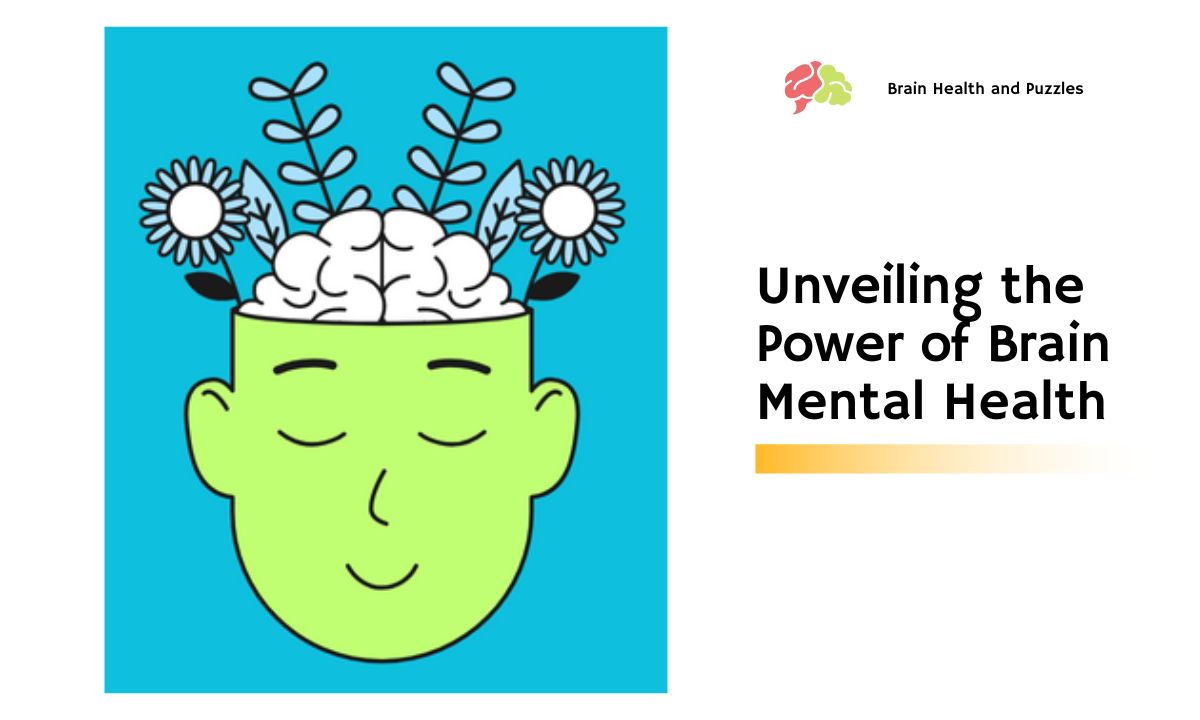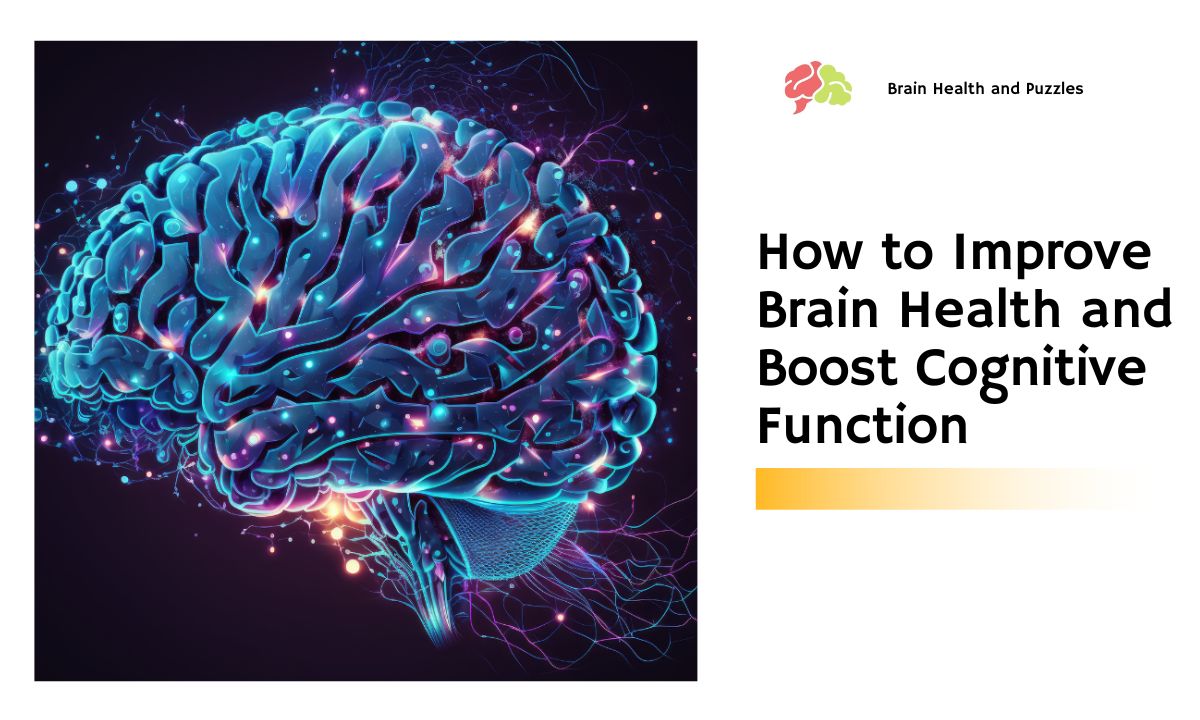Unveiling the Power of Brain Mental Health

In the hustle and bustle of today’s fast-paced world, the importance of brain mental health cannot be overstated. Our mental well-being is closely tied to the health of our brain. In this article, we’ll explore the dynamic connection between brain health and mental well-being, providing insights into how you can empower yourself to lead a happier and more fulfilling life through the nurturing of your brain’s health.
Understanding the Brain Mental Health Link
The brain serves as the command center for our thoughts, emotions, and behaviors. This makes it a critical player in the realm of mental health. To comprehend the significance of preserving good mental health, it’s crucial to understand the following aspects of the brain-mental health relationship:
1. Brain Function and Mental Health
The brain’s functions are intricately linked to our mental well-being. A deeper understanding of how the brain operates can illuminate the path to maintaining a sound mental state. This section will delve into the various regions of the brain and their roles in our mental health.
2. The Impact of Stress on the Brain
Stress, an unavoidable part of life, can become a significant threat when it becomes chronic. Here, we’ll examine how stress affects the brain and, in turn, our mental health. We’ll also explore strategies for effectively managing and reducing stress’s impact on the brain.
Nurturing Your Brain for Enhanced Mental Health
With a firm grasp of the brain mental health connection, let’s now shift our focus to practical steps you can take to enhance your mental well-being by nurturing your brain.
3. Diet and Brain Health
The food you consume plays a vital role in the health of your brain. Nutrient-rich foods can enhance cognitive function, while poor dietary choices can have adverse effects. This section will highlight the best foods to support your brain and improve your mental well-being.
4. The Significance of Sleep
Quality sleep is the cornerstone of a healthy brain and robust mental health. We will explore the profound impact of sleep on cognitive function and provide guidance on establishing healthy sleep patterns.
5. Exercise and Brain Health
Regular physical activity not only benefits your body but also plays a pivotal role in maintaining a healthy brain. We’ll reveal how exercise can enhance brain health, reduce stress, and elevate your mood.
6. Social Connections and Mental Health
Human beings are inherently social creatures, and our interactions with others have a profound influence on our mental health. This section will underline the importance of social connections and offer strategies for nurturing meaningful relationships.
7. Mindfulness and Meditation
The practice of mindfulness and meditation can be powerful tools for promoting brain mental health. We’ll delve into the science behind these practices and provide practical tips on incorporating them into your daily life to enhance your mental well-being.
Seeking Professional Support
Sometimes, achieving and maintaining good mental health may necessitate the expertise of a professional. Don’t hesitate to seek assistance when needed. Mental health professionals can offer guidance, therapy, and support to help you navigate challenging times.
Brain Mental Health Facts
Here are some facts about brain health and mental health:
- The brain is the most complex organ in the human body and accounts for only about 2% of the body’s weight but consumes about 20% of the body’s energy.
- The brain is made up of over 100 billion neurons and 100 trillion connections between them.
- The brain is constantly changing and adapting, even throughout adulthood.
- Mental health is just as important as physical health and includes emotional, psychological, and social well-being.
- Mental health problems can affect anyone, regardless of age, race, gender, or socioeconomic status.
- One in five adults in the United States experiences a mental health condition each year.
- Mental health conditions are treatable and millions of people recover every year.
Here are some tips for maintaining good brain health:
- Get regular exercise. Exercise helps to increase blood flow to the brain, which can improve cognitive function and protect against neurodegenerative diseases.
- Eat a healthy diet. Eating a balanced diet that includes plenty of fruits, vegetables, and whole grains can provide the brain with the nutrients it needs to function properly.
- Get enough sleep. Sleep is essential for brain health and memory consolidation. Most adults need around 7-8 hours of sleep per night.
- Manage stress. Chronic stress can damage the brain and increase the risk of mental health problems. Find healthy ways to manage stress, such as exercise, yoga, or meditation.
- Challenge your brain. Learning new things and engaging in mentally stimulating activities can help to keep your brain active and healthy.
- Socialize. Social interaction is important for brain health and well-being. Make time to connect with friends and loved ones.
If you are concerned about your brain health or mental health, talk to your doctor. They can help you to assess your risk factors and develop a plan to protect your brain health.
Compared Normal Brain Mental Health Brain Scans
Brain scans of people with normal brain mental health typically show a healthy, symmetrical brain with no abnormalities. The different areas of the brain are well-defined and there is good blood flow to all parts of the brain.
Brain scans of people with mental health conditions may show a variety of abnormalities, depending on the specific condition. For example, people with schizophrenia may have enlarged ventricles (fluid-filled cavities in the brain) or reduced activity in the prefrontal cortex (the part of the brain responsible for planning, decision-making, and social behavior). People with depression may have reduced activity in the hippocampus (the part of the brain responsible for memory and emotion regulation).
Here is a table that compares brain scans of people with normal brain mental health to brain scans of people with mental health conditions:
| Brain region | Normal brain mental health | Mental health conditions |
|---|---|---|
| Prefrontal cortex | Active, well-defined | Reduced activity, may be smaller in size |
| Hippocampus | Active, well-defined | Reduced activity, may be smaller in size |
| Amygdala (responsible for emotion regulation) | Normal size and activity | May be enlarged or overactive in anxiety disorders and post-traumatic stress disorder (PTSD) |
| Ventricles | Normal size | Enlarged in schizophrenia and other conditions |
| White matter (tracts that connect different parts of the brain) | Well-organized | May be disorganized or damaged in conditions such as multiple sclerosis and schizophrenia |
It is important to note that brain scans are just one tool that doctors use to diagnose and assess mental health conditions. Other factors, such as symptoms, medical history, and family history, are also important.
Additionally, it is important to note that not everyone with a mental health condition will have abnormalities on a brain scan. Conversely, some people with normal brain scans may have mental health conditions.
Brain scans can be helpful in understanding the underlying neurobiology of mental health conditions and developing more effective treatments.
Conclusion
In conclusion, the vitality of mental health is intrinsically linked to the health of your brain. By nurturing your brain through proper nutrition, adequate sleep, regular exercise, and meaningful social connections, you can significantly impact your overall well-being. Remember that seeking professional help is a sign of strength, not weakness. Prioritizing your mental health and taking care of your brain are vital steps toward a happier, healthier you. Embrace these strategies and embark on your journey to improved mental health today.



